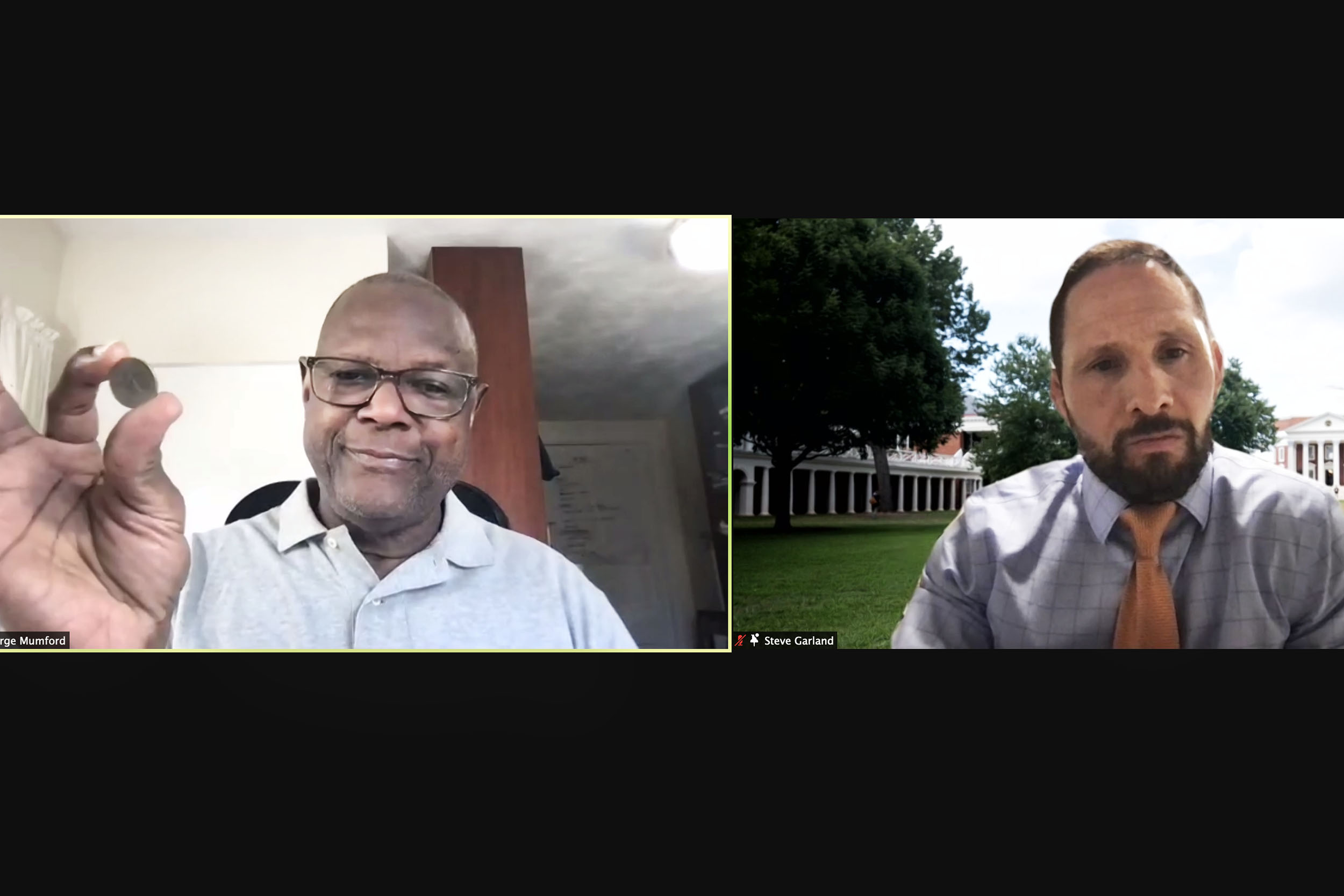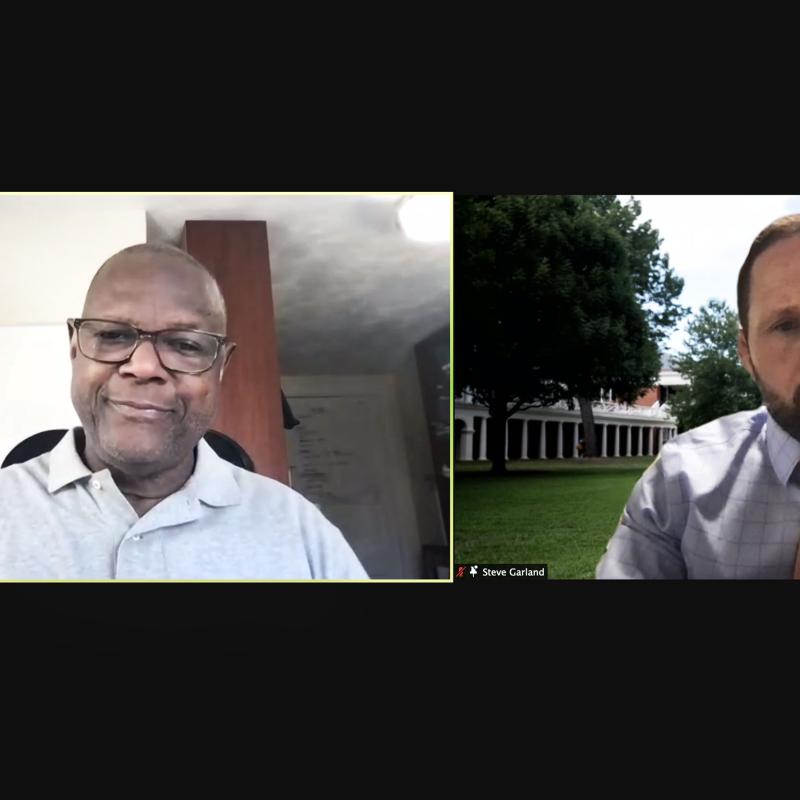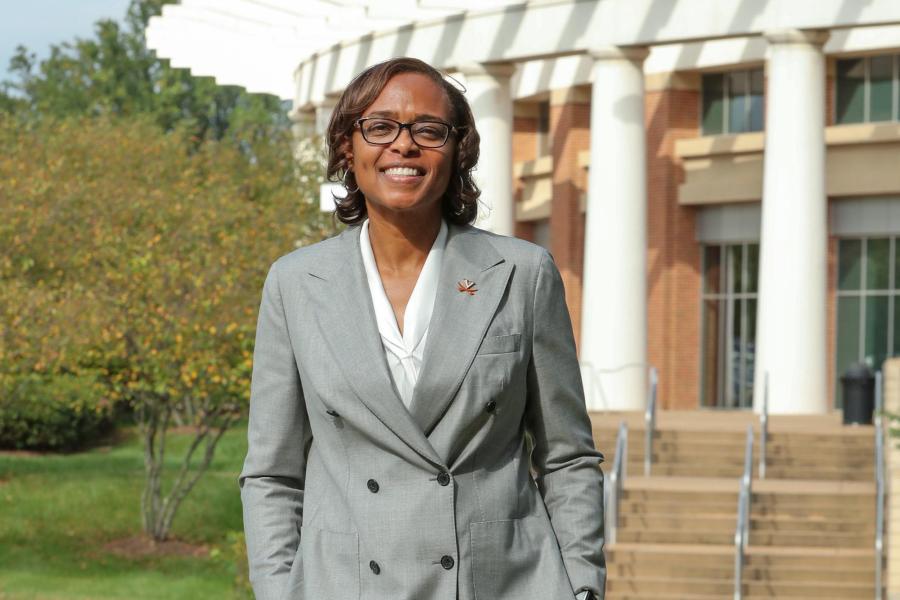What do Fred Rogers, Yogi Berra and Dr. Dre have in common? Aside from all being famous, probably not a lot.
But on Wednesday morning, they all made their way into a discussion about the practice of mindfulness that featured internationally renowned speaker, teacher and coach George Mumford.
In the webinar, hosted by University of Virginia Athletics and UVA’s Contemplative Sciences Center, Mumford led a 15-minute meditation, then took questions from students, faculty, staff and others.
Mumford is a former college basketball player who said he was able to overcome a drug addiction with the help of meditation and mindfulness.
NBA legend Michael Jordan credits Mumford with transforming his on-court leadership and helping the Bulls win six NBA championships. Mumford has also worked with Kobe Bryant, Shaquille O'Neal and countless other NBA players, Olympians, executives and artists.
“I like to talk about this idea that life can be an exciting adventure,” Mumford said during his introductory comments. “The sun should rise within you each day in terms of the richness of your feelings and the sharpness of your perceptions.
“And so the idea is to understand that one of the greatest adventures in living is getting to know ourselves better. It’s a journey of self-discovery.”
Last year, UVA Athletics and the Contemplative Sciences Center started the Citizen Leaders and Sports Ethics Community Impact Fellowship, a new leadership program for student-athletes.
Wednesday’s event, moderated by UVA head wrestling coach Steve Garland, was part of a special monthly Virtual Meditation on the Lawn series, offered by the CSC and its UVA partners during the spring semester.
Here are some highlights from the Q&A:







